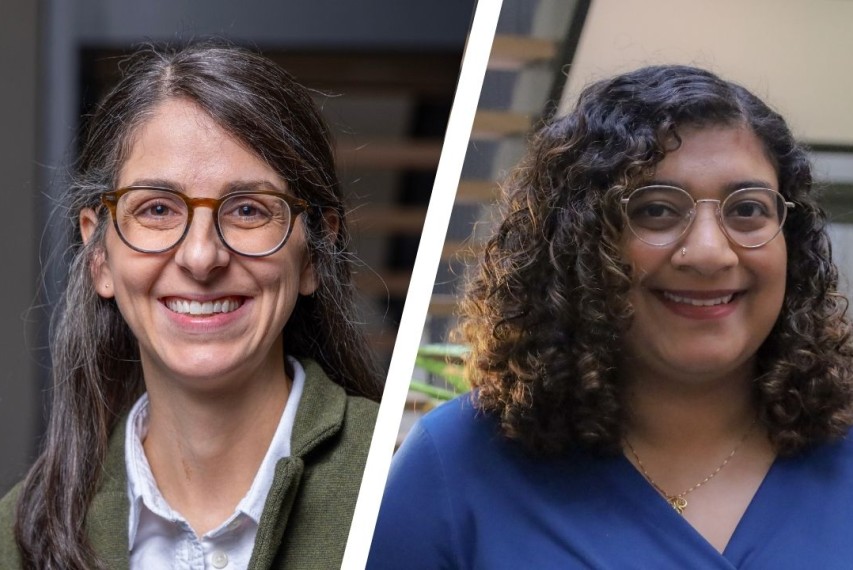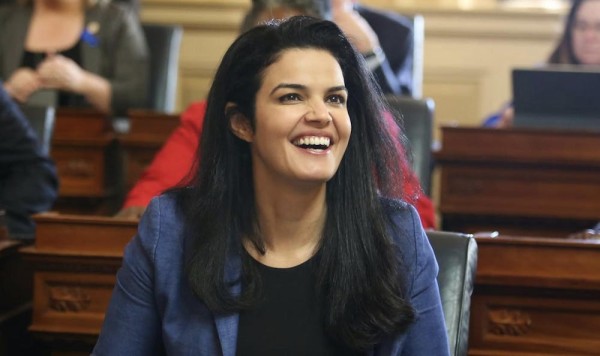
By Sydney Shuler
When Virginia Delegate Katrina Callsen took the floor during the 2025 General Assembly session to introduce a bold bill expanding access to advanced math coursework for middle schoolers, she brought research—not just rhetoric—with her. That research came from specialists at the Center for Community Partnerships at the University of Virginia (UVA).
A new law, HB2686, signed by Governor Glenn Youngkin in the spring of 2025, mandates that local school boards create policies for automatically enrolling eligible middle school students in accelerated math courses such as Algebra I and Geometry. These policies will use standardized test scores as a primary indicator of readiness. Parents will be notified of their child’s placement and can opt out, ensuring both access and autonomy in the educational decision-making process. The legislation reflects a growing consensus that early access to rigorous coursework can significantly boost long-term student outcomes.

“I’m looking for a few things to happen with this bill,” said Callsen. “I want to raise transparency about math progression for parents and students; I want more kids taking advanced math when they are capable; I want reduced discrepancies between demographic groups in advanced math; and I want school districts to dive into the data to ensure they are offering students opportunities when they are ready.”
Callsen noted that if she had to choose one key metric to gauge the bill’s success, it would be the number of students taking Algebra by the 8th grade—generally seen as a critical milestone that opens doors to higher education and STEM-related careers.
The data behind the bill came from a research memo authored by Nina Schoonover and Asha Muralidharan, education researchers at the Center for Community Partnerships at UVA. The memo, which Delegate Callsen cited during her presentation to the House Education and Health Subcommittee, outlines the academic benefits of math acceleration for students who demonstrate early proficiency.
“Our goal is to empower the community with research and knowledge to make informed decisions around policy and practice—especially when those decisions can have lasting, positive impacts for so many students across Virginia,” said Schoonover.
Middle school math placement—particularly enrollment in high school-level courses—sets a critical academic trajectory. In Virginia, students who took Algebra I in 7th grade after scoring “advanced proficient” on their 5th-grade Standards of Learning (SOL) math exams had a 90% pass rate, and 80% went on to earn advanced high school diplomas.
Yet access to these courses hasn’t always been consistent. Local practices often vary widely, and high-achieving students can be overlooked. HB2686 aims to address this by creating a more standardized, evidence-based approach across the Commonwealth.
The legislation comes at a crucial time, as post-pandemic learning loss continues to affect math achievement statewide. In the 2023–24 school year, only 71% of Virginia students in grades 3 through 12 passed their math SOL exams, compared to 82% pre-pandemic in 2018–19. This data is detailed in the Center’s analysis
“The research memo was worth its weight in gold,” said Callsen. “I gave the memo to every single legislator on the Senate and House Education Committees. I mentioned it during my presentation of the bill, shared it with the Department of Education as we workshopped versions, and ultimately included it in my final lobbying packets that I distributed far and wide to build a coalition of support.”
She added, “The Center for Community Partnerships was willing to conduct an unbiased analysis to determine whether the bill was needed, whether it would be good policy, and whether it would lead to the desired outcomes—even in the very early stages, when there might not have been a bill at all.”
The research memo also emphasized that advanced math coursework not only supports high school and college success but can play a pivotal role in narrowing achievement gaps. With HB2686 now law, school counselors and teachers have stronger tools—and a clear mandate—to identify and support students ready to take the next step in their academic journeys.
Importantly, the policy ensures that decisions are not based on test scores alone. Educators and families still play a central role in determining what’s best for each student.
Read the bill: HB2686
Read the research memo: Reading and Math SOL Test Outcomes in Virginia
This article reflects the views of the researchers and not the official position of the University of Virginia. No University resources were used to support any political campaign. All activities comply with UVA’s policy on political activity.